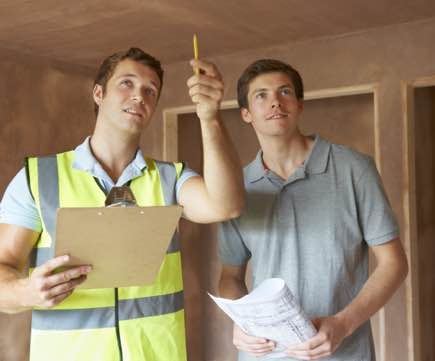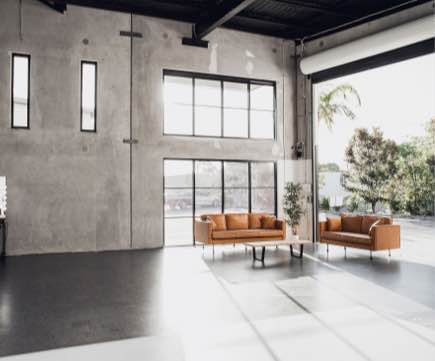Are you planning to purchase a new property or looking to ensure the safety and structural integrity of your current one? A building inspection is an essential step to gain valuable insights into the condition of a building. It provides you with a comprehensive understanding of potential issues, repairs, and maintenance requirements. In this guide, we will walk you through the process of a building inspection and what you can expect from it. Let’s dive in and discover the key aspects of a thorough building inspection!
Why are building inspections important?
Before we delve into the details, let’s understand why building inspections are crucial. Building inspections provide an in-depth assessment of a property’s condition, identifying potential defects, safety hazards, and maintenance requirements. These inspections can save you from unexpected costs and future troubles by helping you make an informed decision about your investment. Whether you are buying a new home or considering renovations, a building inspection ensures that you have a clear understanding of the property’s current state.
Choosing a qualified building inspector
Selecting a qualified and experienced building inspector is paramount to ensure a comprehensive assessment of the property. When choosing an inspector, consider their qualifications, certifications, and industry experience. Look for professionals who are members of recognized associations, such as Master Inspector Association of Australia. These organizations maintain high standards of practice and ethics within the industry.
Pre-inspection preparation
Before the building inspection, it’s essential to prepare the property to ensure a thorough assessment. Here are a few steps to follow:
- Clear access: Ensure that all areas of the property, including the attic, basement, and crawl spaces, are easily accessible for the inspector.
- Utilities: Make sure that the utilities, such as water, electricity, and gas, are turned on. This allows the inspector to assess the functionality of the systems.
- Documentation: Gather any relevant documents, such as permits, plans, and warranties, which can provide valuable information to the inspector.
Exterior inspection
The exterior inspection focuses on the building’s external elements, evaluating its overall condition and identifying potential issues. The inspector will examine the:
- Foundation: They will check for cracks, signs of settlement, or other structural concerns.
- Siding and cladding: The condition of the exterior covering materials will be assessed for damage, moisture penetration, or pest infestation.
- Windows and doors: The inspector will examine the frames, glass, and functionality of windows and doors.
- Drainage and landscaping: The grading, gutters, downspouts, and landscaping will be evaluated for proper drainage and potential water-related problems.
Roof and attic assessment
The roof and attic are critical areas of a building inspection, as they protect the structure from the elements. The inspector will:
- Inspect the roof covering: They will assess the condition of the roof, looking for missing shingles, signs of leaks, or other damage.
- Check the flashing and gutters: The inspector will examine the flashing around chimneys, vents, and skylights, as well as the condition of the gutters and downspouts.
- Evaluate the attic: They will inspect the insulation, ventilation, and any signs of water damage or pest activity.
Plumbing and electrical systems
The plumbing and electrical systems are crucial components of any building. The inspector will assess:
- Plumbing: They will examine the pipes, fixtures, and drains for leaks, water pressure, and proper functionality.
- Electrical: The inspector will evaluate the electrical panels, wiring, outlets, and switches to ensure compliance with safety standards and identify potential hazards.
Interior inspection
During the interior inspection, the building inspector will thoroughly examine the various components and systems inside the property. This includes:
- Walls, ceilings, and floors: The condition of the interior surfaces will be assessed for cracks, moisture damage, or other structural issues.
- Doors and windows: The inspector will check the functionality, hardware, and seals of doors and windows.
- Staircases and railings: They will evaluate the safety and stability of staircases and railings.
- Fire safety: The inspector will inspect smoke detectors, fire extinguishers, and the presence of carbon monoxide detectors.
Foundation and structural analysis
The foundation and overall structural integrity of a building are essential for its stability and safety. The inspector will:
- Inspect the foundation: They will look for cracks, shifting, or settlement that could compromise the structural integrity.
- Evaluate load-bearing walls and beams: The inspector will assess the condition of load-bearing elements to ensure they are structurally sound.
- Identify signs of structural damage: They will look for indications of sagging, bowing, or unevenness that might suggest structural issues.
Insulation and ventilation evaluation
Proper insulation and ventilation are crucial for energy efficiency and maintaining a comfortable living environment. The inspector will:
- Assess insulation materials: They will identify the type and condition of insulation in the walls, attic, and crawl spaces.
- Evaluate ventilation systems: The inspector will assess the ventilation in the kitchen, bathroom, and other areas prone to moisture buildup.
Termite and pest inspection
Termites and pests can cause significant damage to a property. The inspector will look for signs of infestation, such as:
- Wood damage: They will inspect wooden structures for signs of termite or pest damage.
- Mud tubes: The presence of mud tubes near the foundation or on walls may indicate termite activity.
- Pest nests or droppings: The inspector will search for signs of nests, droppings, or other evidence of pests.
What happens after the inspection?
After completing the building inspection, the inspector will provide you with a detailed report highlighting their findings and recommendations. It is essential to review the report thoroughly and seek clarification if needed. Based on the inspection results, you can make informed decisions regarding repairs, negotiations, or further assessments. Keep in mind that no property is perfect, and the inspection report serves as a valuable tool to help you understand the building’s condition and potential issues.
Common FAQs about building inspections
Q: How long does a building inspection typically take?
A: The duration of a building inspection depends on various factors, such as the size, age, and complexity of the property. On average, a thorough inspection can take anywhere from 2 to 4 hours.
Q: Should I be present during the inspection?
A: While it is not mandatory, it is highly recommended that you attend the inspection. Being present allows you to ask questions, gain firsthand knowledge about the property, and understand the inspector’s findings better.
Q: Can a building inspection uncover hidden defects?
A: While a building inspection is a comprehensive assessment, it is not possible to uncover hidden defects or issues that are concealed within walls, ceilings, or other inaccessible areas. However, the inspector’s experience and expertise can help identify visible signs that may indicate potential problems.
Q: Can I negotiate the price based on the inspection findings?
A: Yes, the inspection report can provide valuable information for price negotiations. If significant issues or safety concerns are identified, you can discuss repairs or adjustments to the purchase price with the seller.
Q: Do I need a building inspection for a newly constructed property?
A: Yes, even new properties can have construction defects or issues that need addressing. A building inspection is recommended for both new and existing properties to ensure everything is in order.
Q: How often should I have a building inspection done?
A: It is advisable to have a building inspection done before purchasing a property and periodically for maintenance purposes. The frequency of inspections depends on factors such as the property’s age, location, and your personal preferences.
Conclusion
A building inspection is an essential step in the property purchasing process or for maintaining the safety and integrity of your current home. It provides you with valuable insights into the condition of the building, helping you make informed decisions and avoid potential pitfalls. By understanding what to expect during a building inspection and following the guidelines outlined in this comprehensive guide, you can ensure a thorough assessment of your property. Remember, investing in a building inspection is investing in peace of mind and the long-term well-being of your property.
Call us on 0409 693 974 during business hours, Monday to Friday from 8:30am to 5:00pm to speak to Robert.
Request an obligation free quote 24/7 via our Free Quote Form




